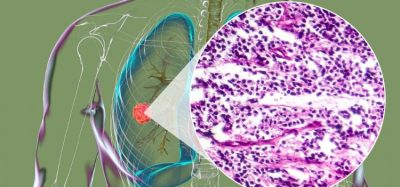Medimmune and Inovio Pharmaceuticals agree to DNA-based immunotherapy collaboration
Posted: 11 August 2015 |
AstraZeneca today announced that MedImmune, its global biologics research and development arm, has entered into a license agreement and collaboration with Inovio Pharmaceuticals, a biotechnology company developing DNA-based immunotherapies for cancer and infectious diseases. Under the agreement, MedImmune will acquire exclusive rights to Inovio’s INO-3112 immunotherapy, which targets cancers caused by human papillomavirus (HPV) types […]


AstraZeneca today announced that MedImmune, its global biologics research and development arm, has entered into a license agreement and collaboration with Inovio Pharmaceuticals, a biotechnology company developing DNA-based immunotherapies for cancer and infectious diseases.


Under the agreement, MedImmune will acquire exclusive rights to Inovio’s INO-3112 immunotherapy, which targets cancers caused by human papillomavirus (HPV) types 16 and 18. INO-3112, which is in phase I/II clinical trials for cervical and head and neck cancers, works by generating killer T-cell responses that are able to destroy HPV 16- and 18-driven tumours. These HPV types are responsible for more than 70 per cent of cervical pre-cancers and cancers.
MedImmune intends to study INO-3112 in combination with selected immunotherapy molecules within its pipeline in HPV-driven cancers. Emerging evidence suggests that the benefits from immuno-oncology molecules, such as those in MedImmune’s portfolio, can be enhanced when they are used in combination with cancer vaccines that generate tumour-specific T-cells.
Under the terms of the agreement, MedImmune will make an upfront payment of $27.5 million to Inovio as well as potential future payments upon reaching development and commercial milestones totaling up to $700 million. MedImmune will fund all development costs. Inovio is entitled to receive up to double-digit tiered royalties on INO-3112 product sales.
Within the broader collaboration, MedImmune and Inovio will develop up to two additional DNA-based cancer vaccine products not included in Inovio’s current product pipeline, which MedImmune will have the exclusive rights to develop and commercialise. Inovio will receive development, regulatory and commercialisation milestone payments and will be eligible to receive royalties on worldwide net sales for these additional cancer vaccine products.
David Berman, Senior Vice President and Head of the Oncology Innovative Medicines unit, MedImmune, said: “Today’s collaboration with Inovio leverages our deep internal expertise in the use of vaccines to drive antigen-specific T-cell responses. The unique combination of our broad immuno-oncology portfolio with Inovio’s T-cell-activating INO-3112, which enhances cancer specific killer T-cells, has the potential to deliver real clinical benefits for patients.”
Joseph Kim, President and CEO, Inovio, said: “Our licensing partnership with MedImmune represents an important step in executing our immuno-oncology combination strategy and advancing Inovio’s cancer vaccine R&D pipeline with a leading cancer immunotherapy company. INO-3112 is progressing, with positive interim data generated in an Inovio-initiated phase I study. We appreciate MedImmune’s recognition of our ability to activate best-in-class killer T-cells in vivo and look forward to working with them on this collaboration.”
Today’s agreement builds on the existing partnership between Inovio and MedImmune on two research and development collaborations in the infectious disease area. Both efforts are funded by the Defense Advanced Research Projects Agency (DARPA) and support R&D focused on Ebola, influenza, and bacterial infections. MedImmune has a strong heritage in infectious disease and vaccine innovation, having developed the first monoclonal antibody approved by the US Food & Drug Administration for the prevention of an infectious disease and the technology that led to the creation of an HPV vaccine.








